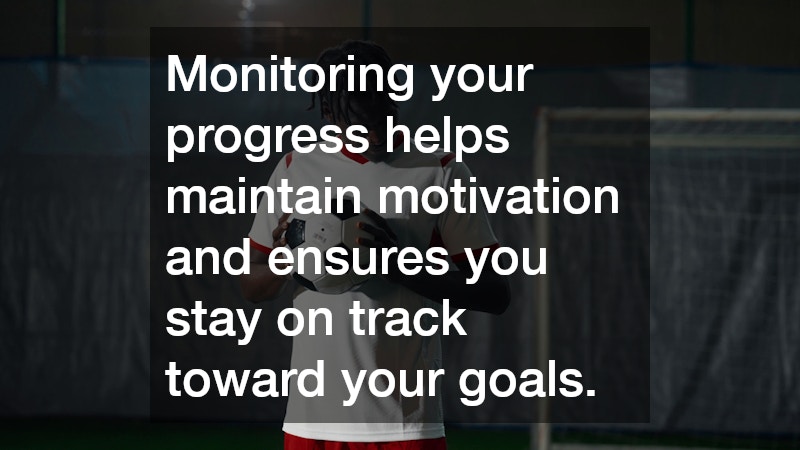Athletes at every level are constantly looking for ways to improve their performance, gain a competitive edge, and reduce the risk of injury. Whether you’re a weekend warrior, a high school athlete, or a professional, targeted training can make a significant difference in your game. One of the most effective methods to boost athletic ability is through sports performance training. This specialized approach combines strength, speed, agility, and endurance exercises tailored to your sport, helping you reach new heights in performance. In this blog, we will explore how sports performance training can elevate your game by improving physical capabilities, enhancing mental toughness, and promoting long-term athletic success.
What Is Sports Performance Training?
Sports performance training is a comprehensive training method designed specifically to enhance the physical and mental skills required in athletic competition. Unlike general fitness routines, this type of training focuses on developing the precise attributes necessary for your sport, such as explosive power, quick reflexes, balance, and stamina.
It often includes a blend of strength training, plyometrics, speed drills, and sport-specific movements.
The goal of sports performance training is not just to improve fitness but to translate those gains directly into better on-field or on-court results. Athletes work on improving muscle coordination, reaction time, and injury resilience through tailored workouts that mimic the demands of their particular sport.
Mental Toughness and Focus
Beyond the physical, sports performance training helps cultivate mental toughness—a vital ingredient for competitive success. Rigorous training conditions athletes to push through discomfort, stay focused under pressure, and maintain confidence during challenging situations.
The discipline required to follow a structured training program often carries over into competition, helping athletes stay calm and composed. Visualization techniques and mindfulness exercises are sometimes integrated into sports performance training to further sharpen mental resilience.
Improved mental toughness allows athletes to recover quickly from setbacks, maintain motivation, and consistently perform at their best when it matters most.
Injury Prevention and Longevity
Injuries are a common obstacle that can derail an athlete’s progress and shorten their career. One of the key advantages of sports performance training is its emphasis on injury prevention. By strengthening muscles, tendons, and ligaments and improving joint stability, athletes can better withstand the physical demands of their sport.
Correct movement patterns and flexibility are addressed during training, reducing the risk of strains, sprains, and overuse injuries. Functional exercises that mimic sport-specific motions teach proper biomechanics, helping athletes avoid common pitfalls that lead to injury.
This proactive approach to injury prevention not only keeps athletes in the game but also extends their longevity, allowing them to perform at high levels for longer periods.
Customization for Every Athlete
A significant reason sports performance training is effective is that it is highly customizable. Every sport, position, and athlete has unique demands and weaknesses that must be addressed. Coaches and trainers develop individualized programs that focus on the specific needs of each athlete, making sure to balance strength, speed, endurance, and skill development.
For example, a sprinter’s training will prioritize explosive power and acceleration, while a soccer player’s program might emphasize endurance and agility. This tailored approach ensures that every athlete maximizes their potential without wasting time on irrelevant exercises.
The personalization also allows for adjustments based on progress, injuries, or changes in competitive schedules, keeping training both safe and effective.
Integrating Sports Performance Training Into Your Routine
For those interested in elevating their game, integrating sports performance training into their routine requires planning and commitment. Start by consulting with a qualified coach or trainer who can assess your current fitness level, identify areas for improvement, and design a program suited to your sport.
Consistency is key. Regular training sessions focused on strength, speed, agility, and endurance build the foundation for long-term success. Combining these sessions with skill drills and proper recovery strategies will maximize the benefits.
Nutrition and rest are also crucial components. Eating a balanced diet rich in protein, healthy fats, and carbohydrates fuels training and aids recovery. Quality sleep supports muscle repair and mental focus.
Tracking Progress and Staying Motivated
Monitoring your progress helps maintain motivation and ensures you stay on track toward your goals. Regular testing of speed, strength, and agility allows you to see tangible improvements and adjust your training accordingly.
Setting short-term and long-term goals keeps your efforts focused and purposeful. Celebrate milestones, no matter how small, to boost confidence and reinforce positive habits.
Working with a training partner or group can add accountability and make the journey more enjoyable.
Incorporating sports performance training into your athletic routine can profoundly elevate your game by improving physical abilities, building mental resilience, and preventing injuries. The targeted and customizable nature of this training method allows athletes of all levels to maximize their potential and achieve peak performance. Whether you’re preparing for a competitive season or simply want to improve your fitness for recreational sports, investing in sports performance training is a smart choice that delivers lasting benefits.
With dedication, proper guidance, and a balanced approach, sports performance training will help you reach new heights and perform at your very best when it counts the most.


